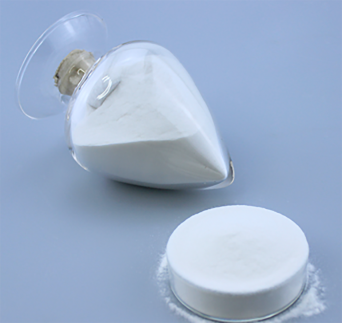
lis . 10, 2024 05:39 Back to list
Properties and Applications of Propyl Methyl Cellulose in Various Industries
Understanding Propyl Methyl Cellulose Applications and Benefits
Propyl Methyl Cellulose (PMC) is a semi-synthetic polymer derived from cellulose, a natural polysaccharide obtained from plant cell walls. As a member of the cellulose ether family, it has garnered significant attention in various industrial applications due to its unique properties and versatility. This article delves into the composition, properties, applications, and benefits of Propyl Methyl Cellulose.
Composition and Properties
PMC is synthesized through the etherification of cellulose with propylene oxide and methyl chloride. This process imparts specific characteristics to the polymer, including solubility in organic solvents and a range of aqueous solutions. The degree of substitution of methyl and propyl groups affects the properties of PMC, including its viscosity, gel formation, and solubility.
One of the most notable features of PMC is its thermoreversible gelation, meaning that it can transition between liquid and gel states when subjected to temperature changes. This property is particularly beneficial for applications that require a stable gel at room temperature but can be easily transformed into a more fluid state when heated.
Applications
1. Food Industry PMC is widely used as a food additive due to its thickening, stabilizing, and emulsifying properties. It is employed in sauces, dressings, and baked goods to improve texture and shelf life. As a fat replacer, PMC can help reduce caloric content in low-fat and reduced-calorie products.
2. Pharmaceuticals In the pharmaceutical sector, Propyl Methyl Cellulose serves as a binder and coating agent in tablet formulations. Its ability to form gels makes it advantageous for controlled-release drug delivery systems. Additionally, PMC is also utilized in ophthalmic preparations, where it acts as a lubricant for dry eyes.
3. Personal Care and Cosmetics PMC finds extensive use in personal care products such as lotions, creams, and shampoos. Its thickening properties enhance product consistency, while its ability to form films can improve the coating and application of cosmetic products.
4. Construction and Building Materials In the construction industry, PMC is employed as a viscosity modifier and film-forming agent in cement and gypsum-based materials. Its addition improves workability, water retention, and adhesion properties, contributing to the longevity of construction projects.
propyl methyl cellulose

5. Agriculture PMC is utilized in agriculture for seed coating and as a soil conditioner. Its ability to enhance moisture retention and improve soil structure makes it beneficial for crop production.
Benefits of Propyl Methyl Cellulose
The use of PMC offers several advantages across various industries
1. Non-toxic and Biodegradable Being derived from natural cellulose, PMC is non-toxic, making it safe for food and pharmaceutical applications. Its biodegradable nature aligns with the growing demand for environmentally-friendly products.
2. Versatility PMC's adaptable properties allow it to be custom-tailored for specific applications by adjusting the degree of substitution, viscosity, and solubility. This versatility fosters innovation in product development, enabling the creation of new formulations that meet consumer needs.
3. Stability Under varying temperature and pH conditions, PMC remains stable, ensuring that products maintain their intended consistency and performance over time. This stability is crucial for products requiring long shelf life.
4. Consumer Acceptance As a plant-derived ingredient, PMC is well-received by consumers who are increasingly seeking natural and sustainable options in their food, personal care, and pharmaceutical products.
Conclusion
Propyl Methyl Cellulose exemplifies the intersection of natural and synthetic materials, leading to a product that is both functional and versatile. Its applications span diverse industries, from food and pharmaceuticals to construction and personal care. As research continues into new formulations and uses for PMC, its role is expected to expand, further establishing it as an essential component in modern manufacturing and product development. The combination of safety, effectiveness, and environmental sustainability makes Propyl Methyl Cellulose an invaluable asset in today's market.
-
Versatile Hpmc Uses in Different Industries
NewsJun.19,2025
-
Redispersible Powder's Role in Enhancing Durability of Construction Products
NewsJun.19,2025
-
Hydroxyethyl Cellulose Applications Driving Green Industrial Processes
NewsJun.19,2025
-
Exploring Different Redispersible Polymer Powder
NewsJun.19,2025
-
Choosing the Right Mortar Bonding Agent
NewsJun.19,2025
-
Applications and Significance of China Hpmc in Modern Industries
NewsJun.19,2025







